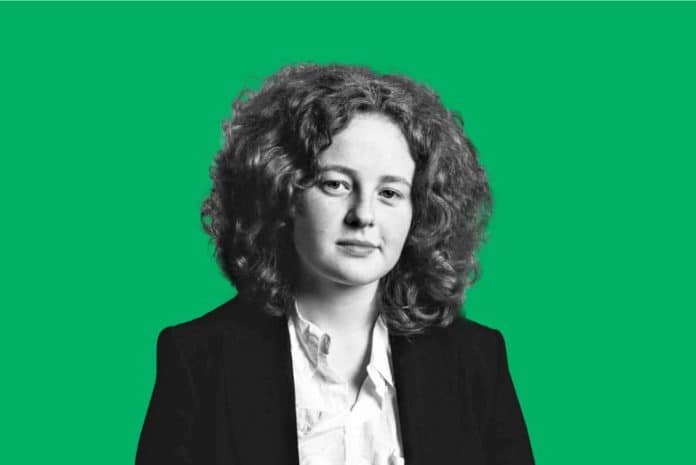Earlier this year, Irish climate activist Saoirse Exton joined the UN Secretary-General’s Youth Advisory Group (YAG) on Climate Change, becoming the group’s youngest ever member. Over the next two years, Saoirse and her six fellow advisors will represent youth perspectives on climate change at the UN and will provide Secretary-General António Guterres with recommendations and solutions.
To celebrate World Environment Day (5 June), which also happens to be Saoirse’s 18th birthday, UNRIC spoke with the Limerick-based teenager about her activism, the power of youth voices and the importance of native languages in the climate movement.
You first started speaking out about climate change when you were just 13. What made you want to be a climate activist?

I have always wanted to be involved in politics. I remember watching campaigns and protests when I was young, but they were all adults. In late 2018, there were videos of mass protests in Australia, calling for climate action, led by young people and I realised for the first time that young people do have power.
On March 1, 2019, I began climate striking, sitting in front of council buildings in Limerick. And from there, what had been about being involved in politics in general became something more. Here in the West, we have the luxury of ignoring how serious the climate crisis is, but I think being immersed in the movement at such a young age allowed me to see how existential the issue is and how absurd the lack of action is.
You have attended global climate events such as COP26 in Glasgow and the C40 Mayors Summit in Argentina. What have you learnt by meeting other climate activists from around the world?
Being able to travel abroad and meet other climate activists from across the planet is a liberating and empowering experience. At the end of COP26, there was a walk-out and a group of activists chanted together in Irish, English, French and Arabic among other languages. We danced, yelled and held hands and this experience was so energising. I still carry it with me, the collective joy we feel as a movement and the unspoken understanding we have for the burden we have shouldered, no matter how different in size our burdens might be. To be good activists, we must remember we are human, as well as what we are working to achieve. Being together with people from across the world reminds us of this.

Why is it important to listen to young people?
Young people are continuously tokenised, used as images to support someone else’s campaign. But after the photo opportunity, we are sidelined and told to sit quietly, to learn the secrets of the world we know and feel is wrong. It is my resolution, as I grow older, to remember the frustration and anger I have felt as a child, teenager and young adult, and to apply this to what I seek to change. The power of the climate movement comes from the ability of young people to see beyond bureaucracy and pomposity and see the possible changes that could be made. It is a responsibility to represent young people because we are so often ignored, and yet are so vitally important to functioning societies, as voters, leaders and workers of the future.
What do you hope to achieve during your time on the YAG?
I would like to do all that I can, even if it is something small, to bring the concerns of young people directly to the Secretary-General and change the way world leaders and decision-makers talk and legislate about the climate crisis. As a Gaeilge (Irish) speaker, I find native languages and cultures are often not included in climate decision-making but seen as another separate hurdle we must tackle. Languages like Gaeilge represent the connection our ancestors held with the world around them. It is evident from Irish words about nature that Ireland was seen not just as a source of natural resources for the generation of wealth, but as a source of our power. Language is a reflection of the human condition, and if we do not protect native languages, we will lose our understanding of ourselves in relation to the world around us. Being able to bring my language with me, and demonstrate the power it holds, is something I am incredibly proud of.
Additionally, I am interested in seeing how world leaders can focus on economic development that ensures our current culture of extraction and exploitation for profit comes to an end. Perhaps it is idealistic to think this change could ever happen, and it is certainly impossible for me to change the entire economic system during my tenure on the YAG, but increasing our scepticism of the systems that have driven us towards this climate crisis is necessary in overcoming it.
What is your message for World Environment Day?

The most important thing we can do as citizens and environmentalists is to vote. Voting is where our power lies as individuals and a collective.
But also, remember that you are human. It can be so easy to forget that we are living, breathing beings, filled with emotion and irrationality. If we do not feel grief, anxiety and anger, then we do not fully understand the scope of what we are facing. Remembering we are fundamentally human is one of the most radical things we can do as a whole as we fight against the climate crisis.
See also:
Young activists debate planet’s future aboard train to COP26




